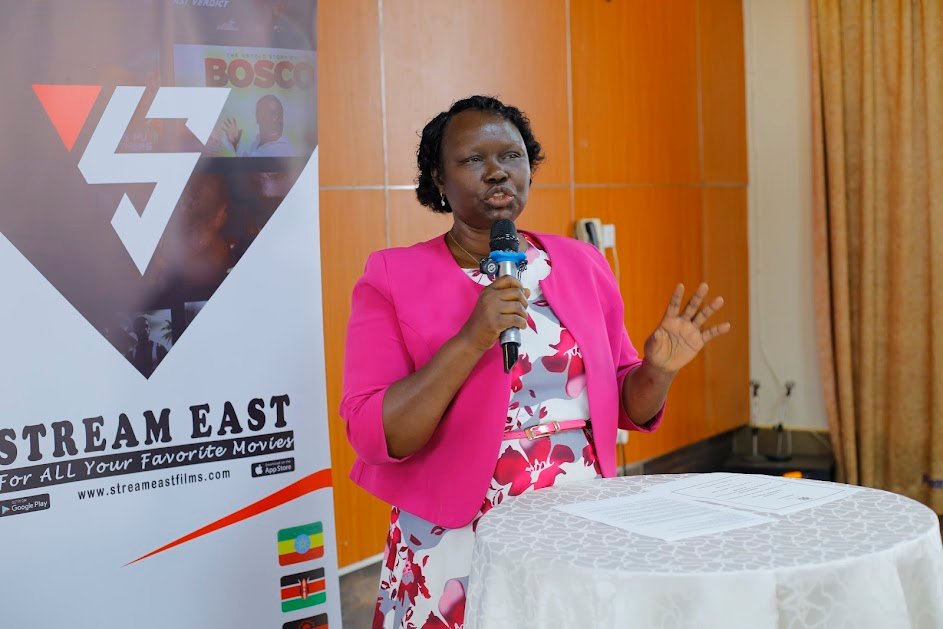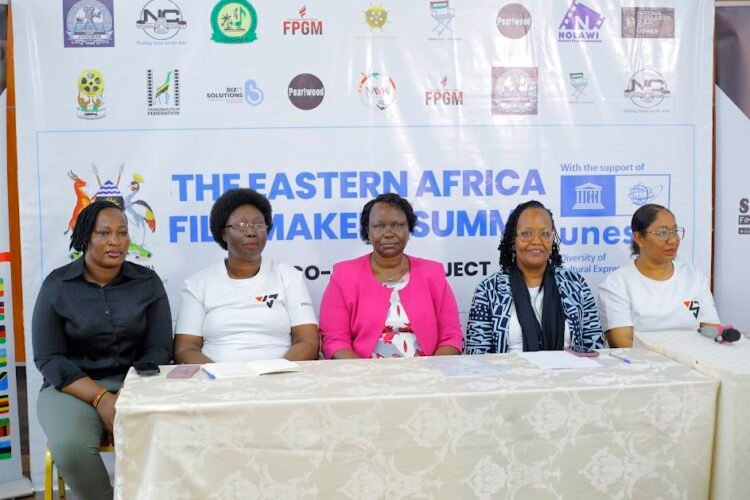BY JULIUS KAWUKI
For four days, the Eastern Africa Filmmakers’ Summit 2025 held at Esella Country Hotel in Najjera brought together film stakeholders, producers, guild leaders, Film sector heads, and government representatives from across Eastern Africa—including Uganda, Kenya, Tanzania, Rwanda, Ethiopia, Zanzibar, Malawi, and Zambia. The summit served as a space for structured dialogue and strategic collaboration, all centered on the mission of shaping the future of East Africa’s film industry—together.
As the summit closed on Thursday morning, delegates witnessed the official launch of Stream East—a cutting-edge digital platform designed to revolutionize how regional films are distributed, monetized, and experienced. Developed under the $100,000 Revitalizing the Film Industry for Livelihood Enhancement (REFILE) project, Stream East marks a pivotal step toward building sustainable careers for local filmmakers through digital access and cross-border visibility.
“This platform gives us a powerful avenue to tell our own stories, connect with wider audiences, and open up income opportunities for our creatives,” said Ms. Naumo Juliana Akoryo, Commissioner for Culture and Family Affairs, who represented the Ministry of Gender, Labour and Social Development.
Stream East is part of a broader regional initiative supported by UNESCO’s International Fund for Cultural Diversity (IFCD). The goal is to strengthen regional integration, elevate content standards, and create fairer opportunities for East African creatives.

The most defining achievement of the summit was the signing of the East Africa Filmmakers’ Pact, a formal agreement by the eight participating countries to collaborate in key areas such as content creation, copyright protection, revenue sharing, and market access.
“This Pact is not just a piece of paper,” Ms. Akoryo noted. “It’s a declaration of unity, a shared vision for growth, and a collective stand for our creative future.”
To oversee the implementation of this historic Pact, the summit also announced the formation of an Interim Regional Filmmakers’ Council, with the following leadership for the first three months:Secretary General – Salma Salim Adim (Zanzibar), Vice Secretary General – Dusabimana Apollos (Rwanda) and Secretary – Bridget T. Chibwe (Zambia)
“This council will be instrumental in translating the Pact’s priorities into tangible action,” Akoryo affirmed.
The summit was graced by representatives from UNESCO, Uganda National Commission for UNESCO (UNATCOM), Uganda Registration Services Bureau, and leading cultural bodies such as Pearlwood, Uganda’s umbrella organization for filmmakers.

“We thank UNESCO, both the Nairobi Regional Office and Uganda National Commission, for their critical support,” Akoryo added. “The creative sector is not just about economics—it’s about identity, voice, and legacy.”
Mzee Bwanika, Secretary General of Pearlwood, emphasized that Stream East is owned by filmmakers themselves, through their associations. He encouraged more film associations to join and strengthen this pan-regional vision.

Salma Salim Adim, delegate from Zanzibar and interim Secretary General of the regional council, echoed strong optimism about the long-term sustainability of both the platform and the Pact.
“Our strength lies in the cooperation among member states,” Salma said. “We also appreciate the mentors, advisers, and organizations ready to walk with us. This is our moment.”
She emphasized that the initiative is regionally owned, not dominated by any single country, and rooted in collective responsibility. With support from regional copyright organizations, she noted, filmmakers will be better protected across borders. The summit also offered solutions to long-standing hurdles—especially in distribution and marketing.
“For so long, we’ve struggled to sell our films beyond our local markets,” Salma said. “Stream East is a breakthrough. Now, filmmakers can stream their content across East Africa affordably, while celebrating the region’s cultural diversity.”
She added that the Pact also prioritizes generational inclusion.
“We’re bringing in the younger generation through special projects, and that will ensure the sustainability of this movement. We are planting seeds for future storytellers.”

When asked whether Stream East will compete with global streaming giants like Netflix, Salma responded thoughtfully.
“We’re not here to replace Netflix. That platform has its audience. Stream East is about representation. It’s about having something homegrown that celebrates who we are.”



























